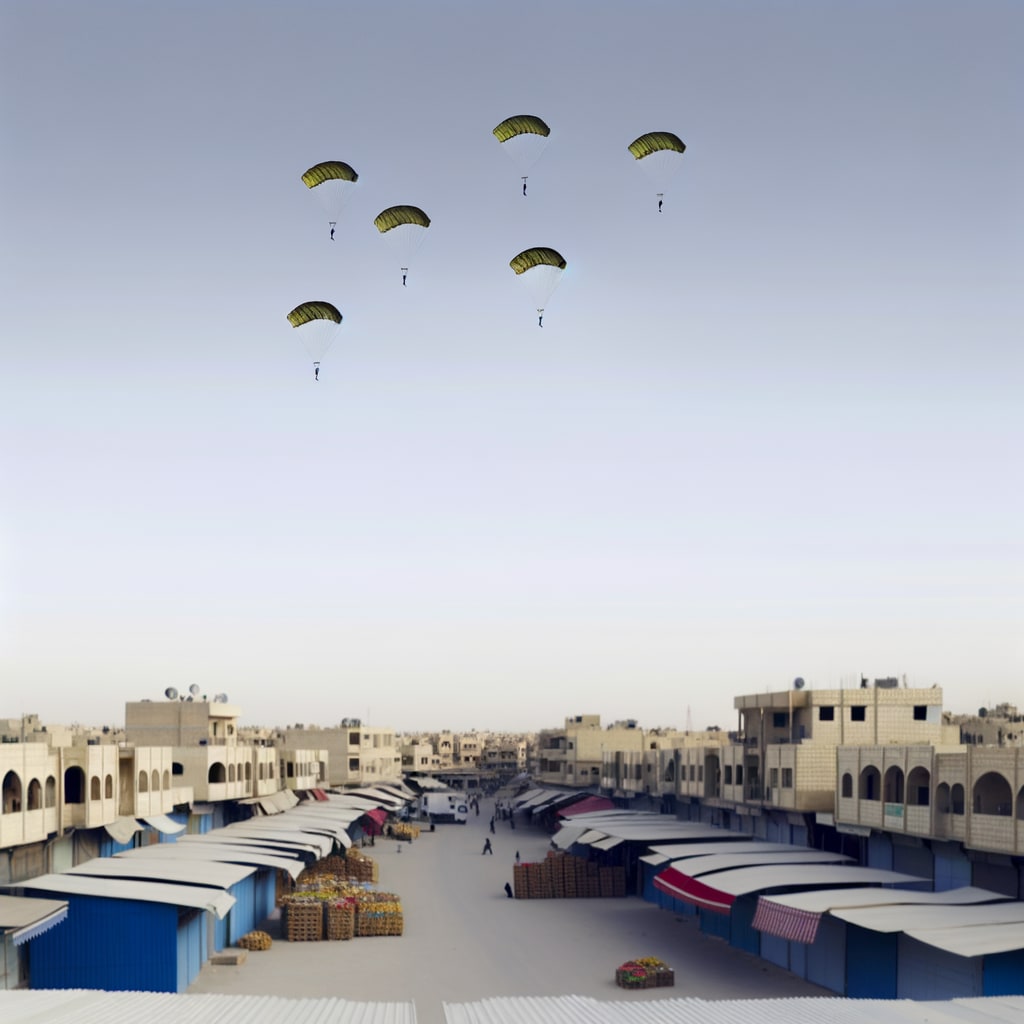Israel Announces Temporary Military Pause Amid Starvation Crisis in Gaza
Israel's military has announced a tactical pause
in three areas of Gaza - Al Mawasi, Deir al-Balah, and Gaza City - allowing for aid deliveries and airdrops as part of efforts to address the deepening hunger crisis in the territory. The pause will take place daily from 10:00 a.m. to 8:00 p.m. local time until further notice, according to the army's press office.
Background: A Starvation Crisis
Scores of Palestinians have died of starvation in recent weeks, a crisis attributed by humanitarian organizations and the UN to Israel's nearly five-month-old blockade of almost all aid into the territory. The World Food Programme reported that 90,000 women and children were in urgent need of treatment for malnutrition and that one in three people were going without food for days.
Details: Aid Deliveries and Airdrops
In response to the growing crisis, the Israeli military also began air-dropping food into the territory. A truck carrying aid is reported to be moving from Egypt towards the Gaza Strip. However, the military's efforts have met with significant challenges. A tent for displaced people was hit by a pallet during an airdrop, injuring 11 people.
Hamas criticized Israel's decision on the humanitarian pauses as a diversion. Meanwhile, the U.K.'s Foreign Minister David Lammy stated that the pauses alone cannot alleviate the suffering in Gaza, emphasizing the need for a ceasefire that can end the war and allow aid to enter Gaza unhindered.
Reaction: Allegations and Denials
The Israeli military's move has been met with widespread skepticism and condemnation. The government in Gaza has demanded an immediate end to the Israeli-imposed famine. Oxfam International warned that Israel's limited aid efforts fall far short of what's needed to address the humanitarian catastrophe, calling for the full reopening of all border crossings for unimpeded aid delivery throughout the Gaza Strip.
Allegations of Israel's responsibility for the starvation crisis have been met with denials and attempts to deflect blame by Israeli officials. Israel has also frequently accused Hamas of stealing aid, a claim contradicted by a USAID study which found no evidence of systematic theft of US-funded humanitarian aid by Hamas.
Current Status: Suffering Continues
Despite the military pauses, the situation in Gaza remains dire. The UN is seeking to maximize the use of these pauses to reach starving residents of the enclave. However, malnutrition rates have reached alarming levels, according to the World Health Organization. The number of Palestinians starved to death in Gaza due to the Israeli-imposed blockade on aid has risen to 122, according to the government in Gaza.
More than a thousand Palestinians have been shot dead by the Israeli army while attempting to receive aid. The Israeli army has also reportedly destroyed over 1,000 truckloads of humanitarian aid meant for Gaza. The aid was left rotting at the Kerem Shalom crossing for weeks and was either buried or burned.
As the crisis deepens, the international community continues to watch and wait for meaningful action to address the ongoing humanitarian catastrophe in Gaza.

